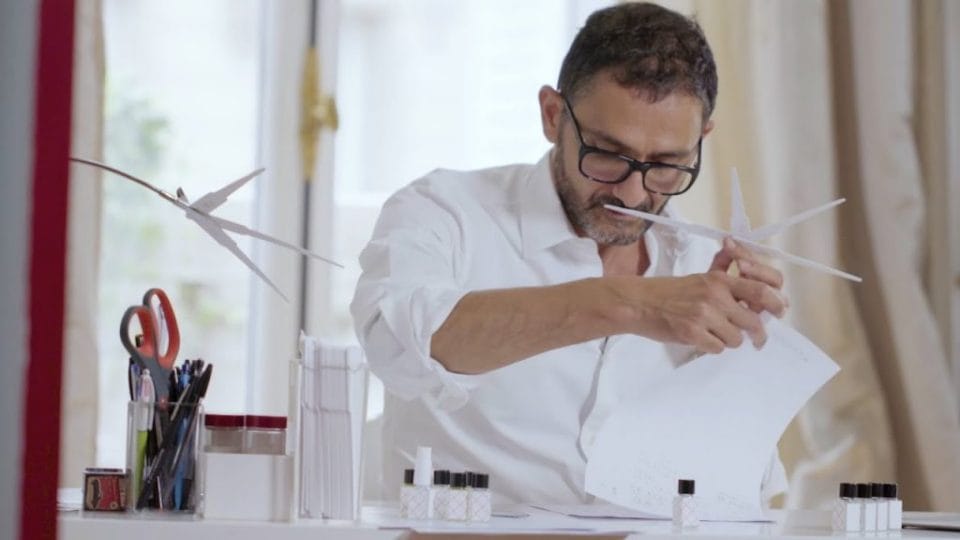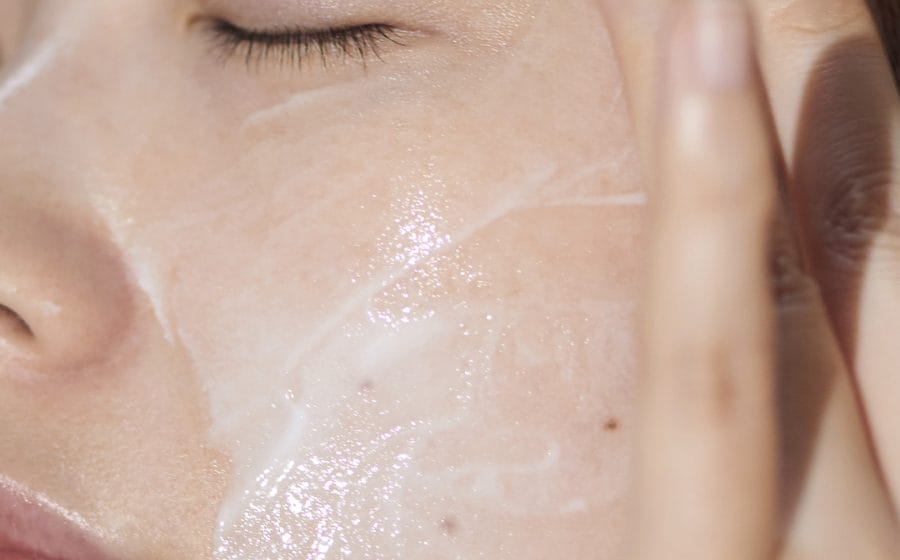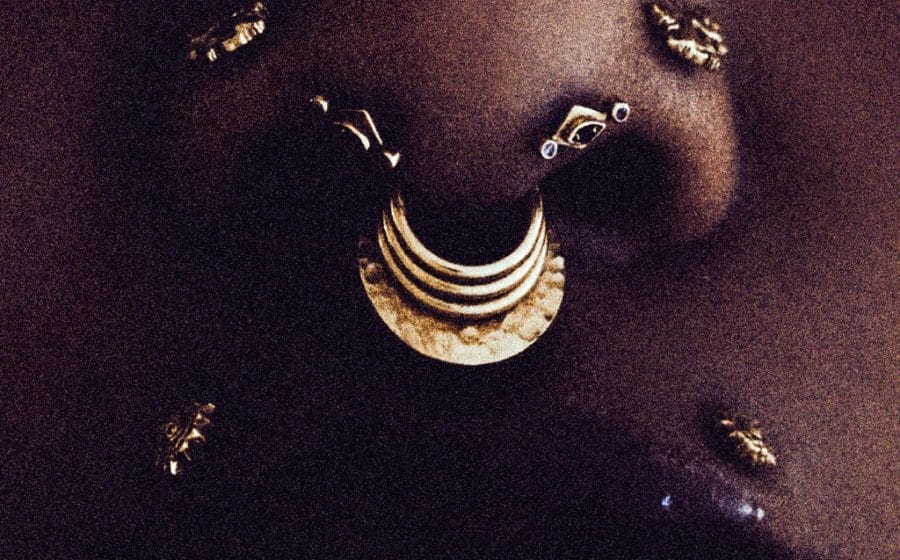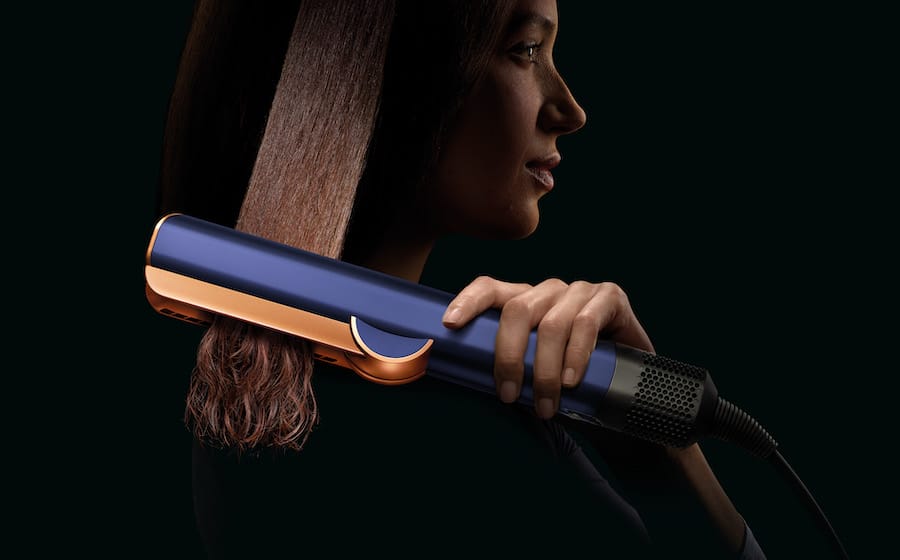
What do you do when you’re an artistically-inclined child who unfortunately, failed a competition to study at the Paris Opera School of Dance? Well, if you’re Francis Kurkdjian, you pursue your one true passion — perfume making — and spin it into an eponymous fragrance house (but that’s after you drop a slew of hit perfumes for other brands).
While Francis Kurkdjian has pushed the art of perfumery (how about a fountain that glows orange while diffusing the scent of orange blossom or geometrically arranging 800 two-wick candles to scent the air?), his latest one might impress you the most.
The man behind some of the olfactory world’s best sellers has created a rose scent for men. Specifically, L’Homme À la rose.
Here, we talk to Francis Kurkdjian about the story behind his latest pleaser.
—
Congratulation on your latest launch. What is the story of L’Homme À la rose?
The story is the idea of allowing men to wear what has long been considered a symbol of femininity. It’s not because of a marketing strategy but instead, comes from a historical standpoint where the rose (be it as a flower or scent) has been known for ages (dating back 5000 or 6000 years and even before Christ) as a feminine symbol.
The first historical use of roses came from China or Persia and it was called the Damask Rose. It is also used for medical purposes like smoothing the skin or even as an ingredient in cooking for Middle Eastern food. You have many different types of recipes that uses rose for its smell and taste — jam, ice cream or even rice cooked with rose petals.
A rose goes beyond its scent and it has also been an image of reference for some religions and this might be why it has been linked to femininity for such a long time.
And also, it was used in different types of art like literature, poetry, paintings — even music or classical ballets (The Spectre Of the Rose).
I do believe however that a raw material doesn’t have a gender because it’s just what it is. Like silk for example because if you think about it in a fashion context, it is neither masculine or feminine. It becomes a tie that takes on a masculine form because of its social codes whereas a dress is a symbol of femininity. Raw materials in the perfume world work exactly the same.
Hence, I really wanted to endorse the idea that roses aren’t just an ingredient for women fragrances.
—
What about the inspiration?
I think that the inspiration is in giving men the opportunity or even the power to wear a rose scent that is dedicated to them.
—
What does modernity mean to you when it comes to crafting a perfume? Is there a gold standard you adhere to?
Modernity is all about the time we live in. There are less rules in a way and we have more flexibility and freedom to express ourselves.
It’s like fashion where there are no rules anymore. I’m much older than you are and when my mother used to check what’s in fashion (when she was 20 and even up till she was 40), it was a time where there were clear trends like patterns, lengths or even sizes and colours.
Nowadays when you go to a fashion show, you don’t really see a link between the brands you go to see. Each house has its own vision of what fashion should be.
Modernity today, to me, is about the freedom of speech and choice. The latter of which which is very important to me which is why we’re successful as a fragrance house.
We give our customers a choice without any boundaries and an opportunity to choose from the largest array of a fragrance family.
—
What do you like and dislike about old world methods of perfumery? Have you shaken up any old habits and conventions that brought them into the now?
I think it’s the task and mission of a creator. The idea is not to duplicate or knock off something that has already been created because it’ll be boring for me, the customer and you as a journalist.
Nobody wants to smell something they’ve already smelled or seen. It’s not interesting and beyond being interesting, I think that this is why I embraced being a perfumer.
Another reason why I decided to become a fine fragrance perfumer was because I think the mission as one is to push the boundaries of creation.
There are many ways of pushing the boundaries as a perfume creator. For example, the boundaries for L’Homme À la rose was for me to work on a very feminine ingredient and make it masculine. You can also push the boundaries by trying to create a new technique or formula. For the former, think of it as literature where you have a style.
Time will tell because we’ve just launched L’Homme À la Rose but so far so good. I’ve received a lot of feedback — not only in terms of PR but in sales — that have been good so far. It’s also a way of putting things together like in music.
When you think about music, some composers or bands break the rules sometimes because they have their own vision and feelings in which they want to express something different or never done before; I try to do the same as a perfumer.
I don’t think I break the rules and don’t even like to say the phrase. What I do is that I try to change them or adapt them to the time I’m living in. To me, breaking the rules is kind of anarchic. I’m just trying to adapt, change and to translate the rules and vision of what has been done into the now. That is very important to me.
—
Where are all the ingredients used in L’Homme À la rose sourced from and what makes them so unique?
I wouldn’t say they’re unique because they’re very old fashioned. If you think about modern art or paintings, Picasso was unique not because he used a specific blue, red or pink. He was unique because of the way he put things together.
If you think about music like The Rolling Stones or even Lady Gaga, the notes and instruments they use are the same. Lady Gaga is unique because her feelings are unique itself and so is her vision.
The way I use rose, clary sage and amber are available for every perfumer on the planet but while I may have the access to a certain quality (which of course, is also important), what makes L’Homme A la rose different isn’t on my reliance on them.
It’s just like in fashion where a piece of fabric is exactly what it is. Alessandro Michele of Gucci, Hedi Slimane at Celine or Maria Grazia Chiuri at Dior all interpret it differently. The material doesn’t make the style because all it does is to help you achieve what you have in mind.
It’s about the vision and the idea. Even the big picture.
—
Are there any ingredients you’d like to explore in the future?
The reason why I’m not using certain ingredients is because I haven’t found the right quality yet — for example, incense and myrrh. I prefer not to use them instead of using something that is not good enough. My quality control process starts from the ingredient where we speak to any of our 50 different suppliers.
During the harvest season, we make sure that we give our suppliers the right specifics so that when they prepare them for us by distilling the oils out, it’s going to meet our standards.
After they send me a sample, I smell it to make sure that it makes the mark. Once done, it goes to the factory where the formula is blended according to a recipe where I smell it once again.
This is called the pure perfume version and if it gets approved, it goes to our filler who prepares the finished product and I will smell it once again.
—
Do you have an interesting story behind one of the ingredients you discovered?
It will be pretentious of me to say that I have discovered an ingredient. I am more interested in finding the best quality possible than finding a new ingredient or formula.
I’m always looking towards new ingredients and newness in a way but that doesn’t mean I neglect what has been done in the past. Improving what has been used in the past is more important to me because I have a lot of respect for traditions.
But, looking back to classic ingredients, having a modern eye to make it contemporary is what I like to do too.
—
What do you think makes a good perfumer?
You have to be passionate because craftsmanship takes a long time to learn and you have to go through distinctive stages to make sure you master the art itself.
Creativity of course is another important value to have. But you have to be creative in a wise way because it’s easy to create something that wows.
What is difficult however, is to create a perfume that is both commercial and creative. Being creative is easy because you can throw a lot of ingredients together but to make a creative and commercial scent is difficult.
For example, Baccarat Rouge 540 is a scent that gets many comments from many people while having a global appeal. It’s easily wearable while being very distinctive and that equation is very hard to create.
—
Is this equation second nature to you then ?
I work on deadlines that are longer than what is normal in the fashion because I do need time to explore. I only think that a scent is done when I have a feeling between body language (something physical that happens like a smile or an emotional feeling) and a feeling in my head that agrees with each other.
When I create a scent for a new project, I have a feeling (emotion) in my mind that I would like to achieve. Almost like a dream of what it should be.
At some point during the process of achieving my vision if I’m working well, I will physically get that emotional answer through the scent I’m smelling. It assures me that I’m finished with the formula of the scent.
—
What would you use to bottle a scent of yourself?
I’m not sure. Maybe the time hasn’t come yet and it’s a question of timing.
—
Just for fun: you’re stuck on a deserted tropical island, what ingredients would you use to “document” your “stay”.
Something local on the island! If it’s a tropical island — you may have Ylang Ylang flowers that are popular in the Philippines or the Caribbean, coconuts (or coconut milk) or even something easy like the smell of heat. It could even be the smell of frangipani flowers which is elegant.
My tropical island smell would smell of lushness, greenery, flowers and something hot and humid.
If you’ve finished reading our interview with Francis Kurkdjian and are bored, listless or sick of doing your job, click here to catch up with our September 2020 issue!







